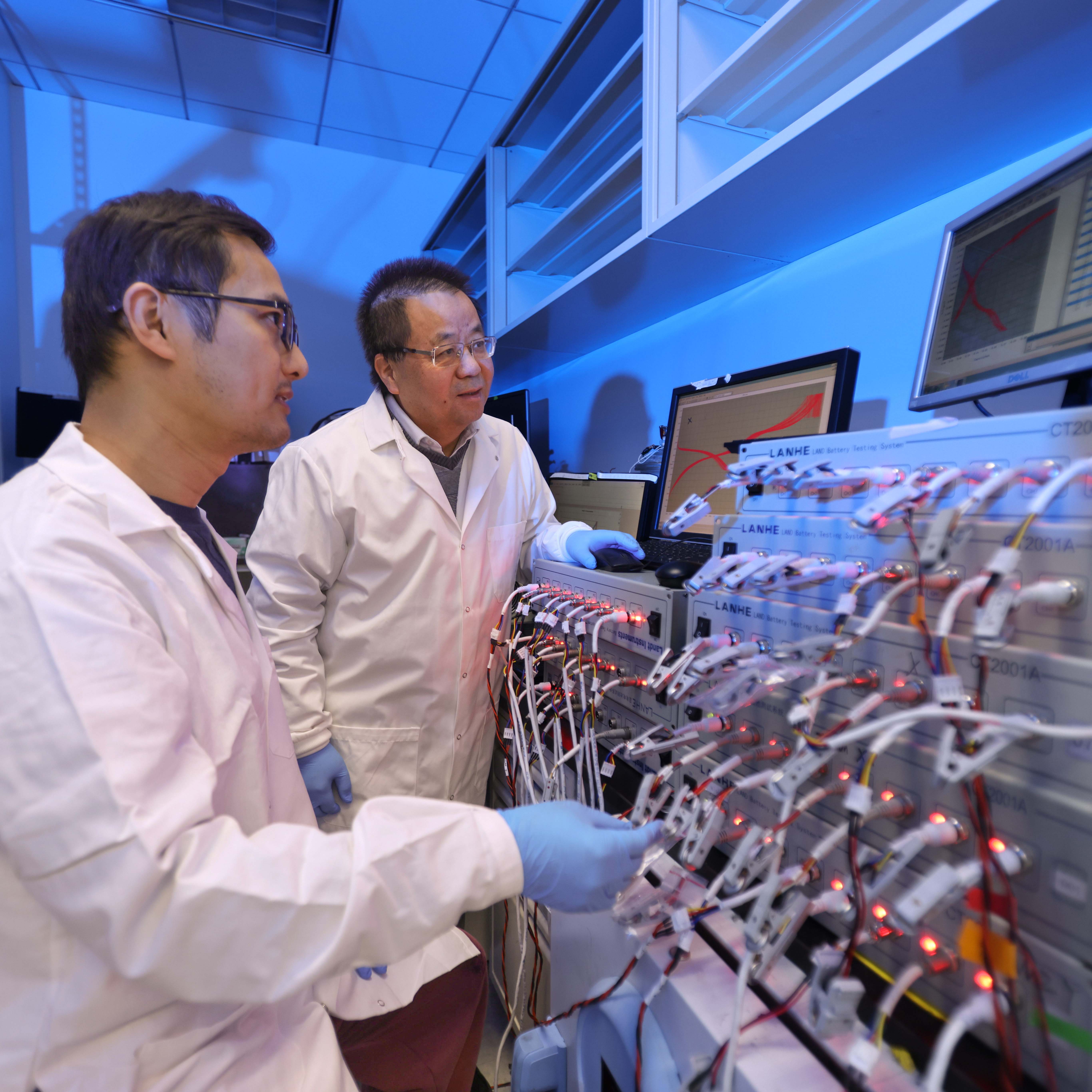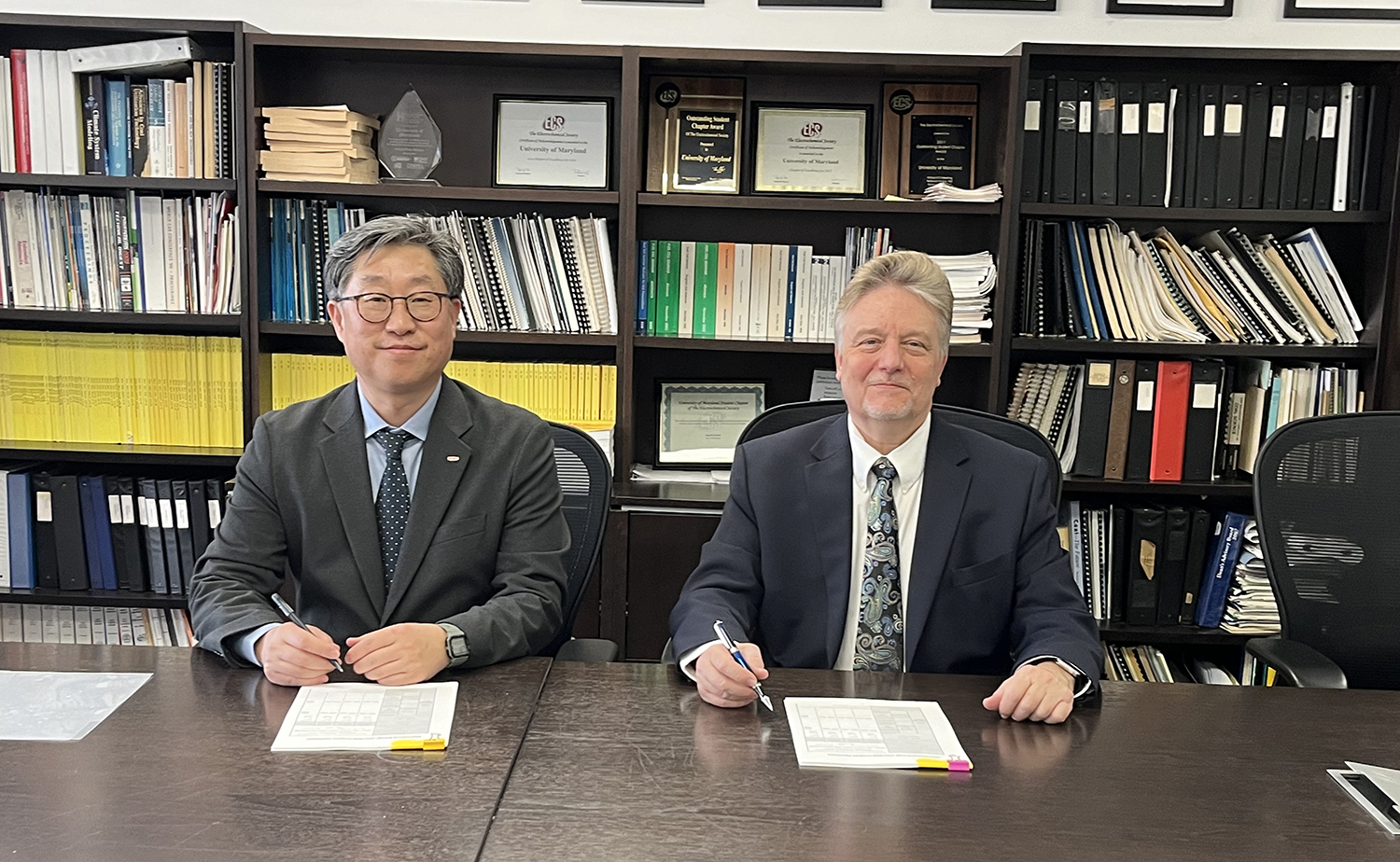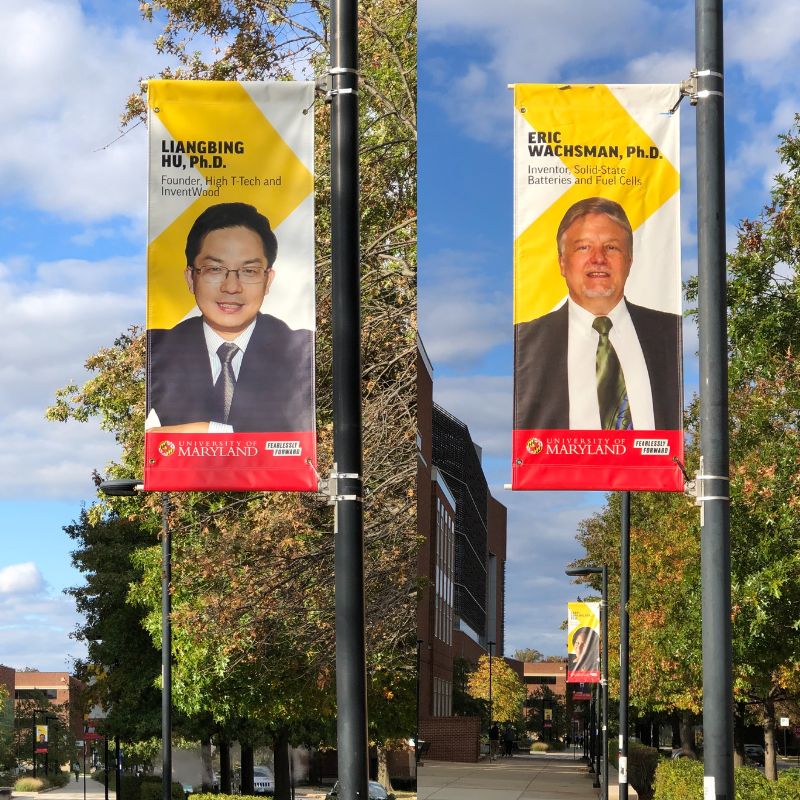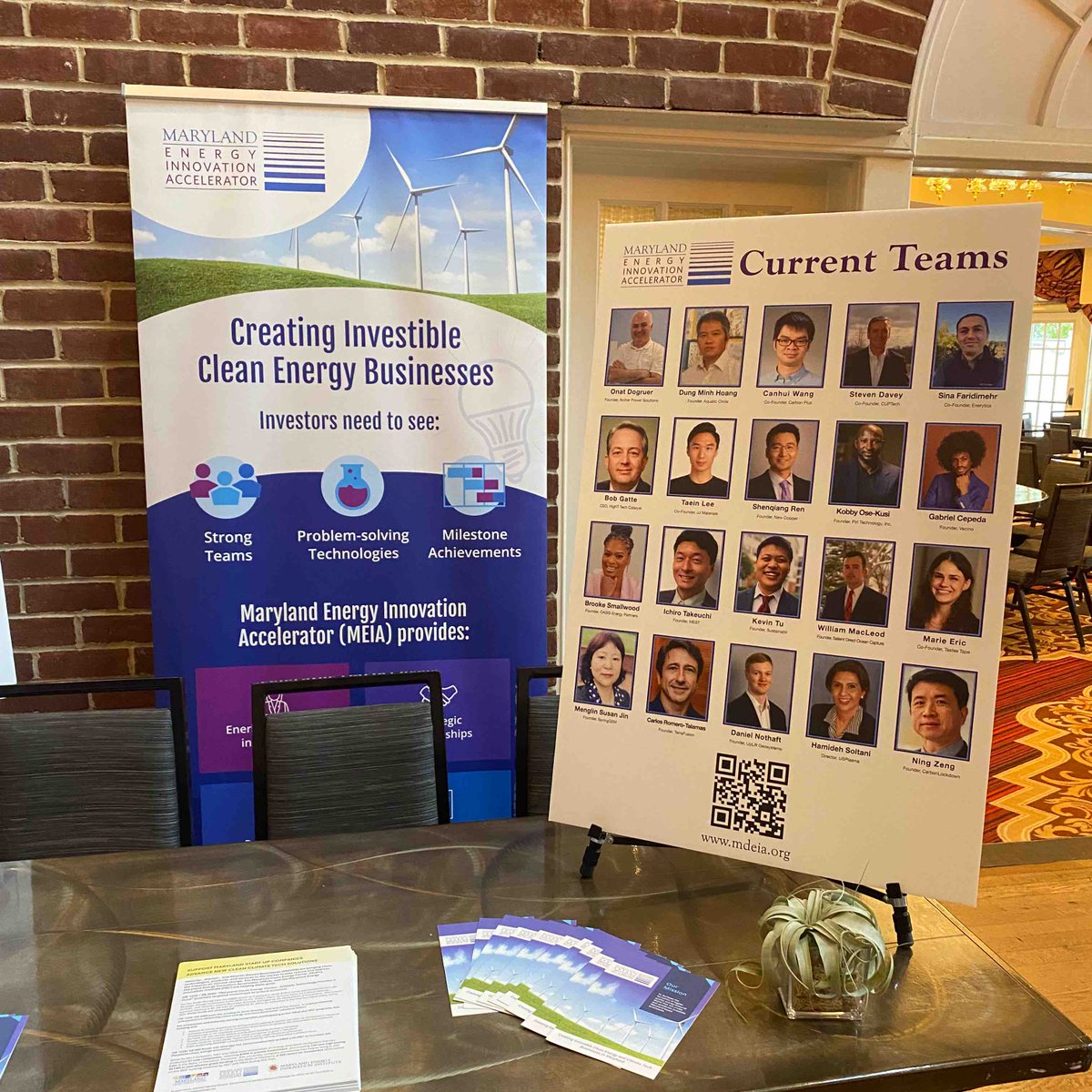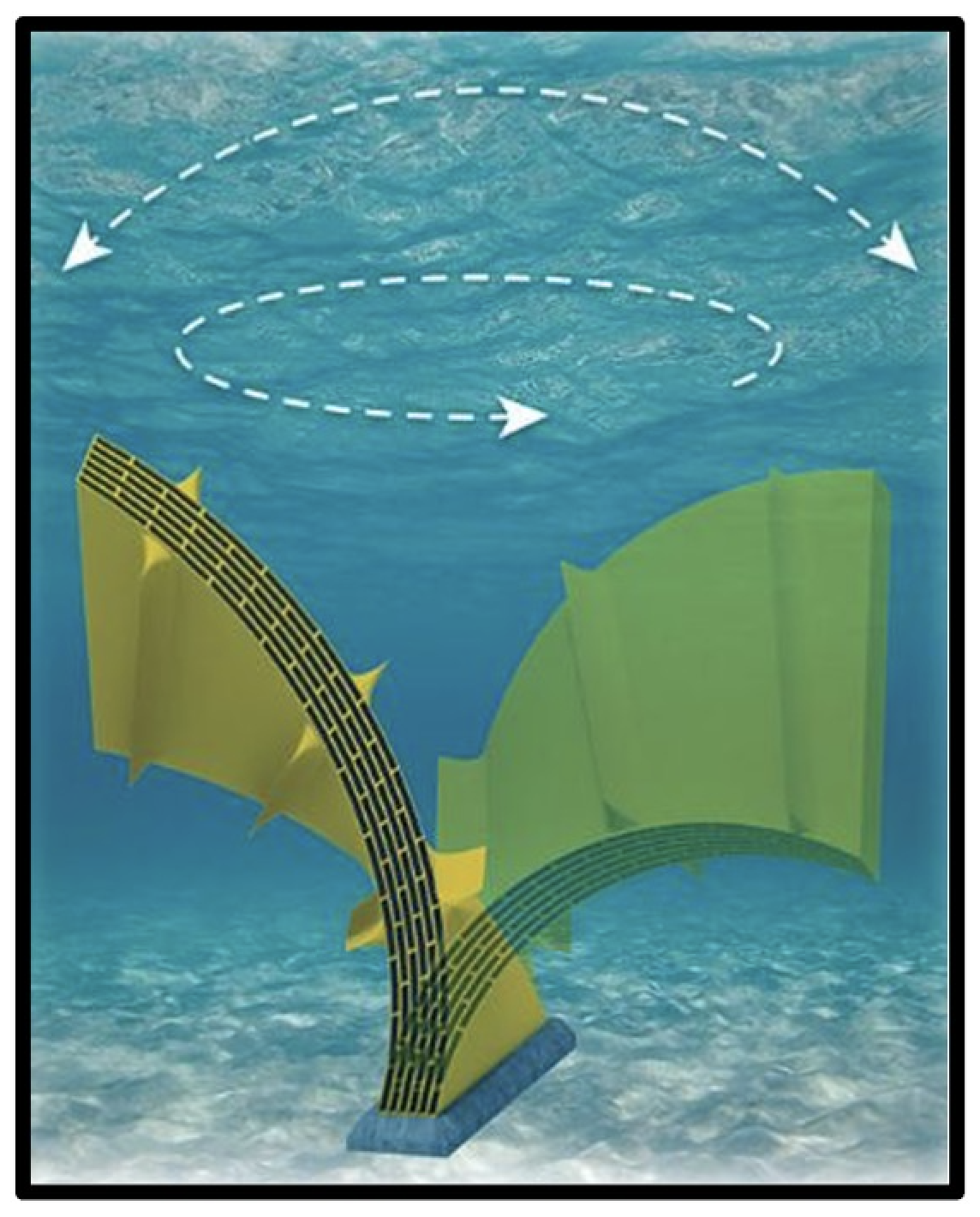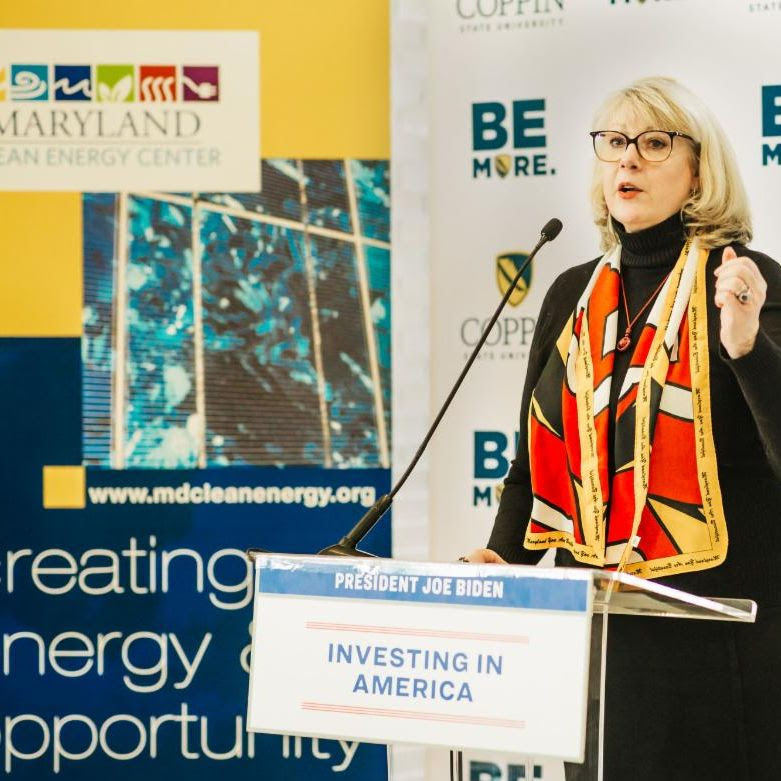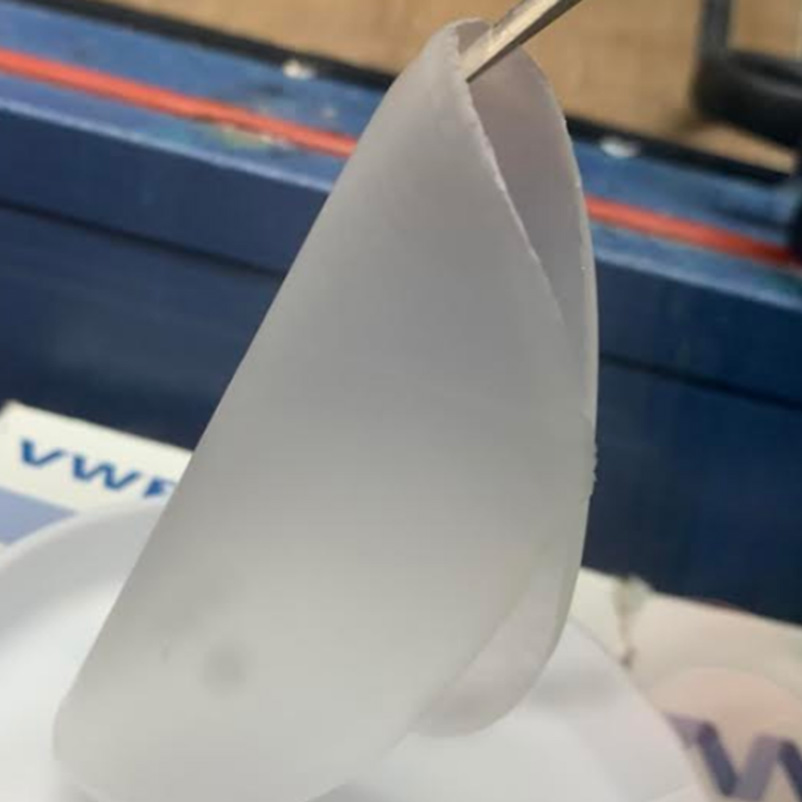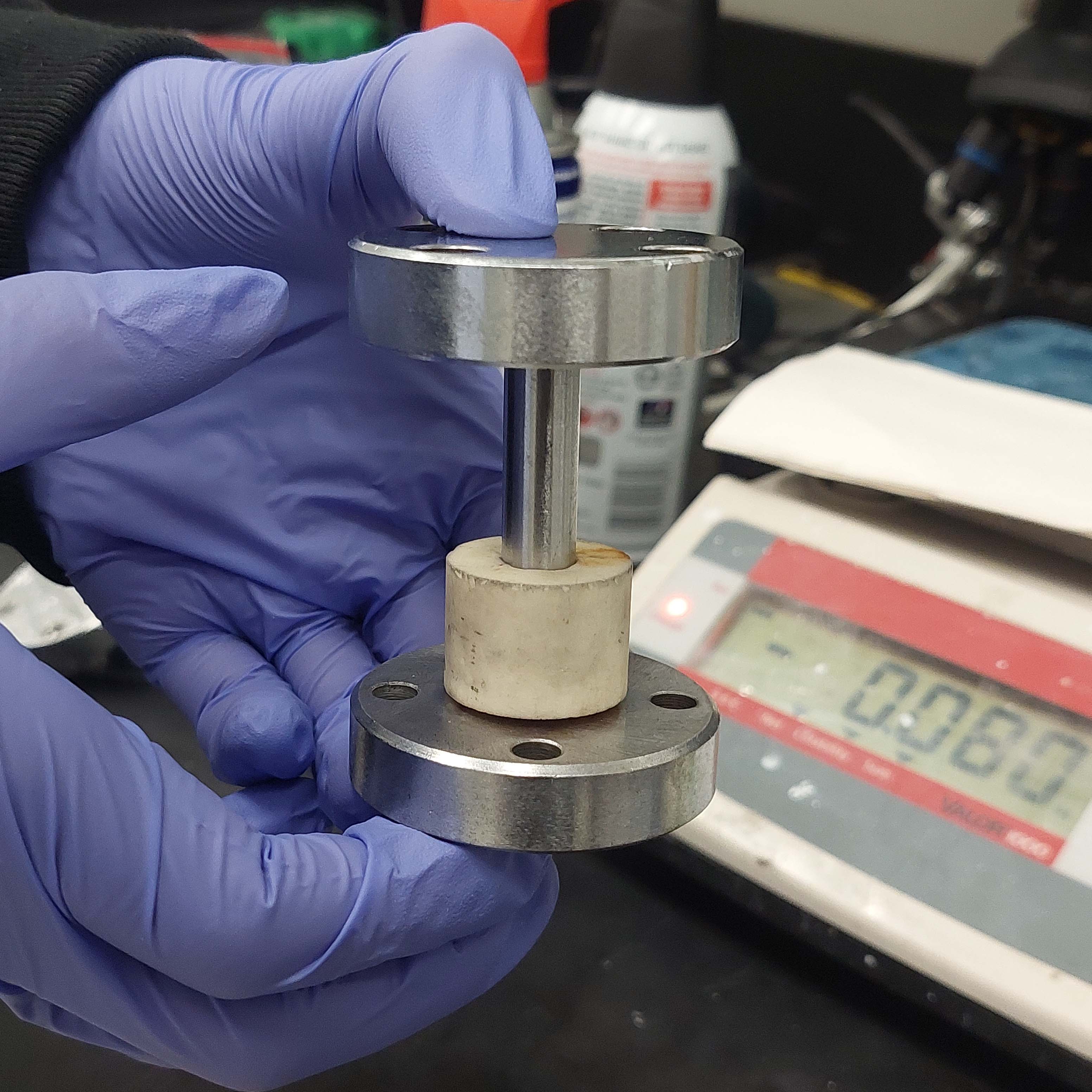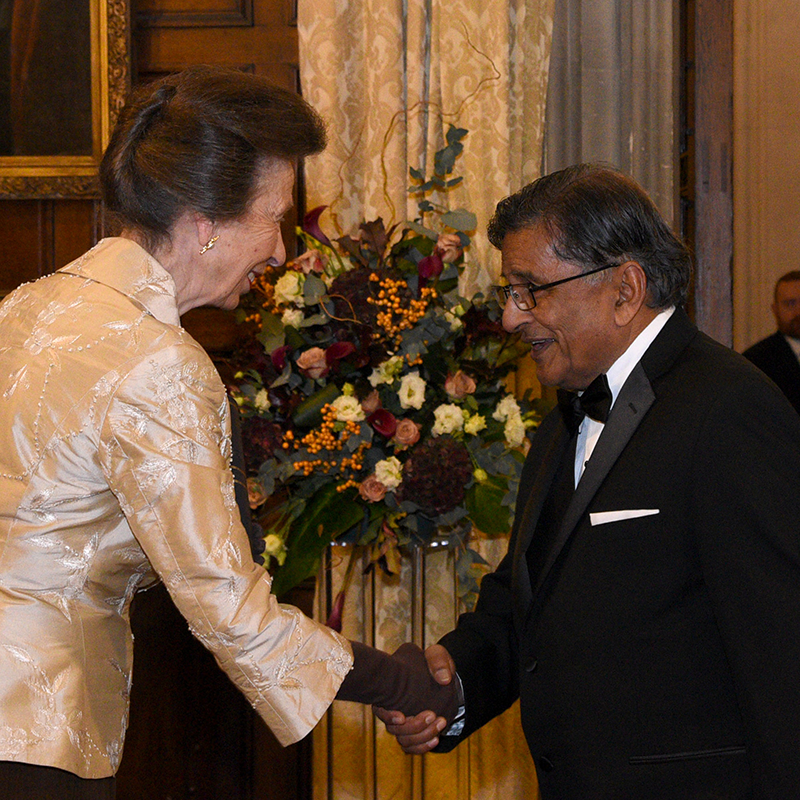News Story
Gibbons Takes Second at GRID Session for Presentation on Solar Thermal Cycling
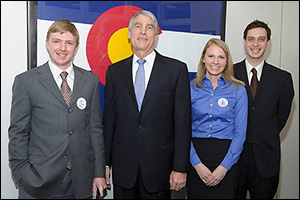
Will Gibbons (far left), with (left to right) Colorado U.S. Senator Mark Udall and Department of Materials Science and Engineering graduate students Amy Marquardt and Alexander Kozen at a 2013 Congressional Visit Day.
Gibbons' presentation, "Electrospun Ceria-based Fibers for Renewable Fuel Production via Solar Thermal Cycling," discussed the development and behavior of materials that could be used in system in which concentrated sunlight drives high-temperature reactions that produce fuel.
"We are focused on energy production by splitting carbon dioxide and/or water to produce carbon monoxide and/or hydrogen, which can be used to produce liquid fuels, such as methanol, ethanol, gasoline, or diesel," he explains. "The focus of my research is on the materials production technique, electrospinning, which can produce ceramic fibers that may have advantages over conventional [catalyst] materials used in solar thermal cycles." Gibbons' role in the project is to determine how his ceramic fibers would stand up to the intense heat generated by the process.
Gibbons has won accolades for both his research and educational activities, including a John and Maureen Hendricks Energy Research Fellowship and ChBE's Teaching Assistant Award. He was also part of a team that won the grand prize in the 2012 U.S. Department of Energy Hydrogen Design Contest and took second place for a poster presentation in GRID's "Addressing Environmental and Energy Issues" that same year. Gibbons, an advocate for alternative energy technology and a member of the university's student chapter of the Electrochemical Society, has participated in activities designed to educate everyone from middle school children to members of congress about the importance of, and technology behind, sustainable energy.
GRID, run by the Graduate Student Government, is a campus-wide event in which graduate students from all parts of the university present and discuss their work with faculty and fellow students, enabling them to receive feedback from a broader audience and perfect their conference presentation skills. Participants make oral and poster presentations that are judged in a variety of categories by faculty, postdoctoral fellows, administrators, and other specialists from around campus.
Published April 22, 2013

